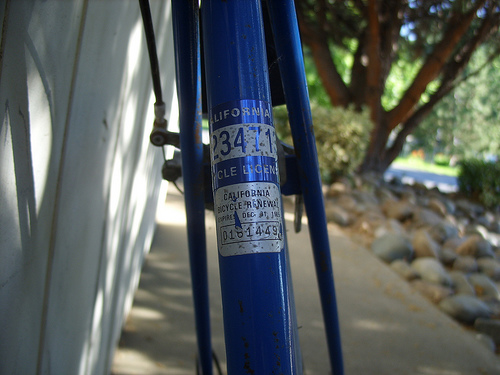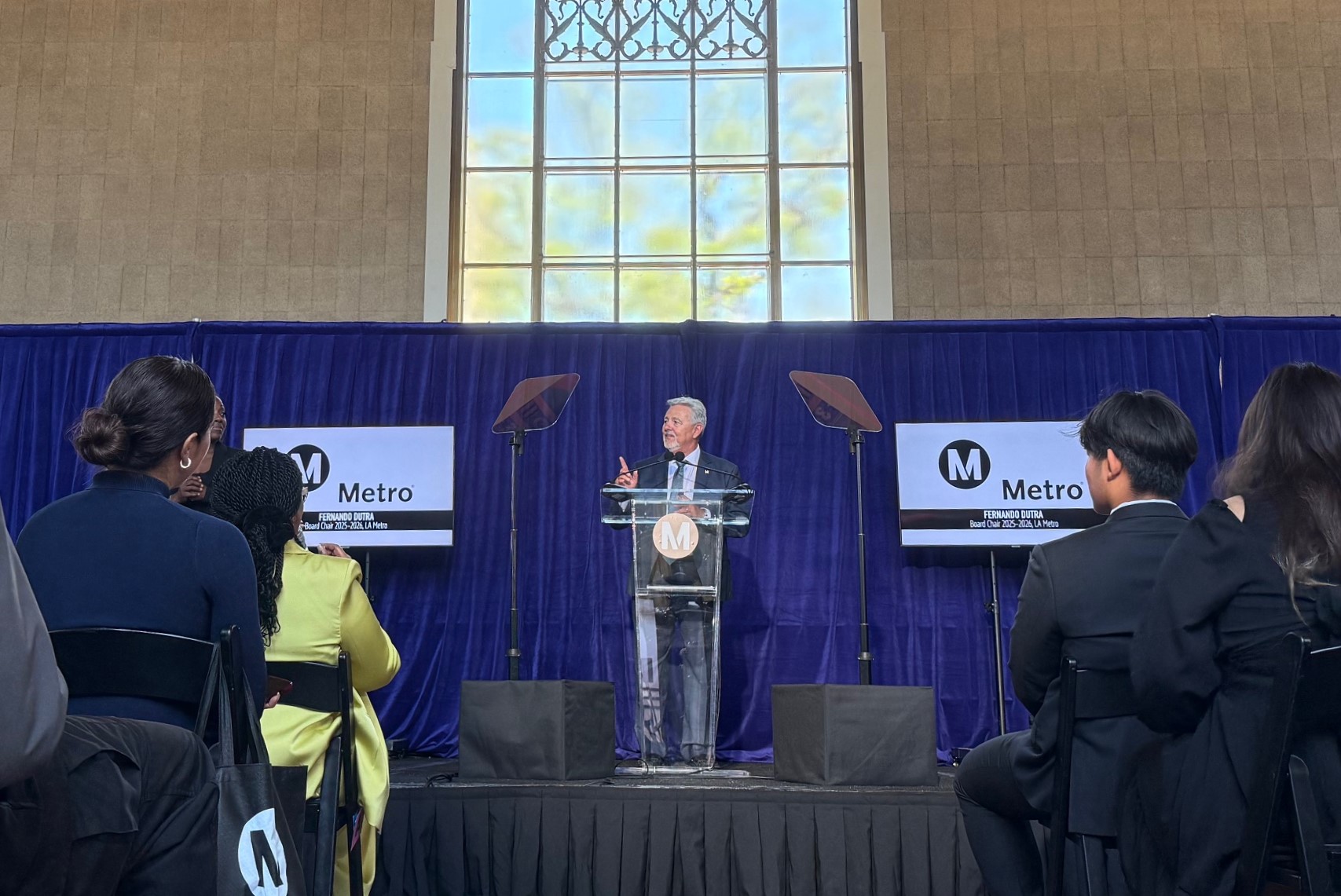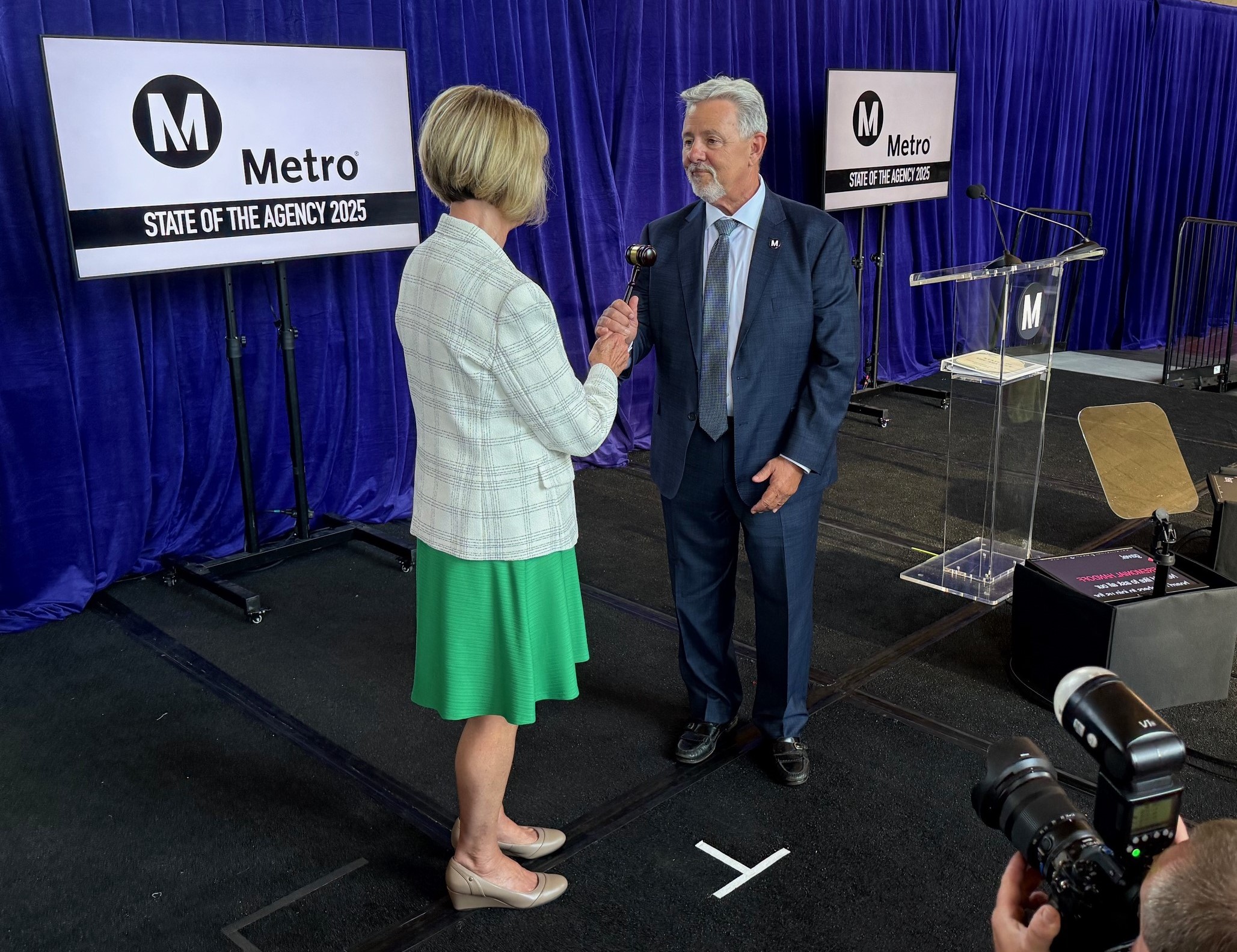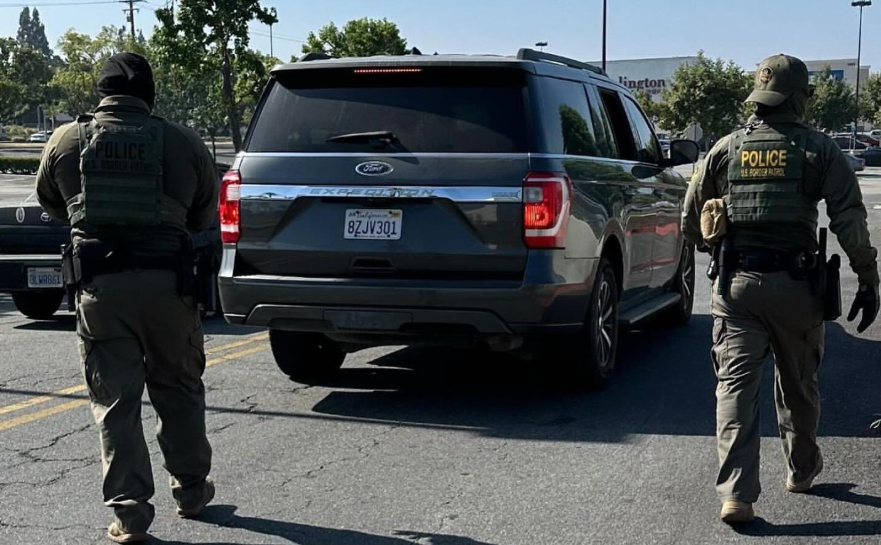Last month, the Los Angeles City Council unanimously passed a motion instructing "the Los Angeles Police Department and the Los Angeles Department of Transportation to develop recommendations for: An effective mandatory or voluntary bicycle registration program, including outreach to retailers, schools, bicycle organizations, etc., to make registration readily available and to encourage people to record bicycle serial numbers."
Despite assurances from the bill sponsors, Councilmembers Bob Blumenfield and Mike Bonin, many advocates expressed concern. And while Blumenfield and Bonin are considered some of the most bike-friendly members of the Council, there's good reason. In 2008, the LAPD decided to start cracking down on bicycles operating within the city without a license, despite the fact that getting a license was nearly impossible in some parts of the city.
Responding to an inquiry from Streetsblog, Blumenfield stressed that he is not looking for a return to the bad old days, and is merely looking for ways to make it easier for people to recover lost or stolen bicycles. He writes
"Today, stealing a bike is one of the easiest crimes to get away with, unless you are caught in the act. When law enforcement comes across a bicycle 'chop shop,' they are often stymied in proving that a crime occurred because bicycles haven't been registered and/or reported stolen.
Free or low-cost registration services exist, but are not well-utilized, and the number of such services makes it more difficult for LAPD to check serial numbers against multiple databases. My motion asks LAPD and LADOT to report on possible methods for increasing the rates of both bicycle registration and reporting of thefts, making it exponentially easier for LAPD to investigate crimes."
A voluntary program, i.e. one where bicyclists are not required to register their bike or face the risk of harassment or fine, could work well. There are several national online databases, and the state's bicycle registration program provides license numbers and stickers for bikes to make tracking easier.
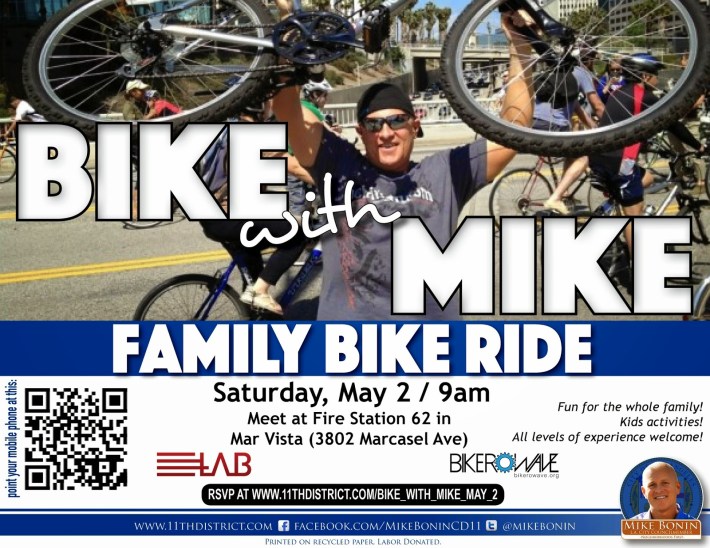
For such a system to be adapted city-wide, or for the LAPD and bicycle shops to team together to encourage more non-mandatory registration, it will also need the buy-in of bicycle groups at the regional and local levels. To earn that, there should be robust outreach by the city before the program is created and throughout the formal process.
The City of Santa Monica provides a good blueprint for how this can work. The Santa Monica Police Department urges bicyclists to register their bike with Bike Index, a nationwide organization that provides tracking information and stores details about the registered bikes. Information on how to use this registry, which is free, is easily available on the SMPD website. When a bike is reported stolen, the police can check Bike Index to get all of the information they need to identify the bicycle should they come across a sale, chop shop or other misuses.
Santa Monica Spoke, the local advocacy group, has become a partner with the SMPD in getting the word out about the program. In addition to having their own gateway to the Bike Index page on the Spoke website, Spoke uses social media to remind bicyclists of the Index and that SMPD could use it to recover a missing bicycle.
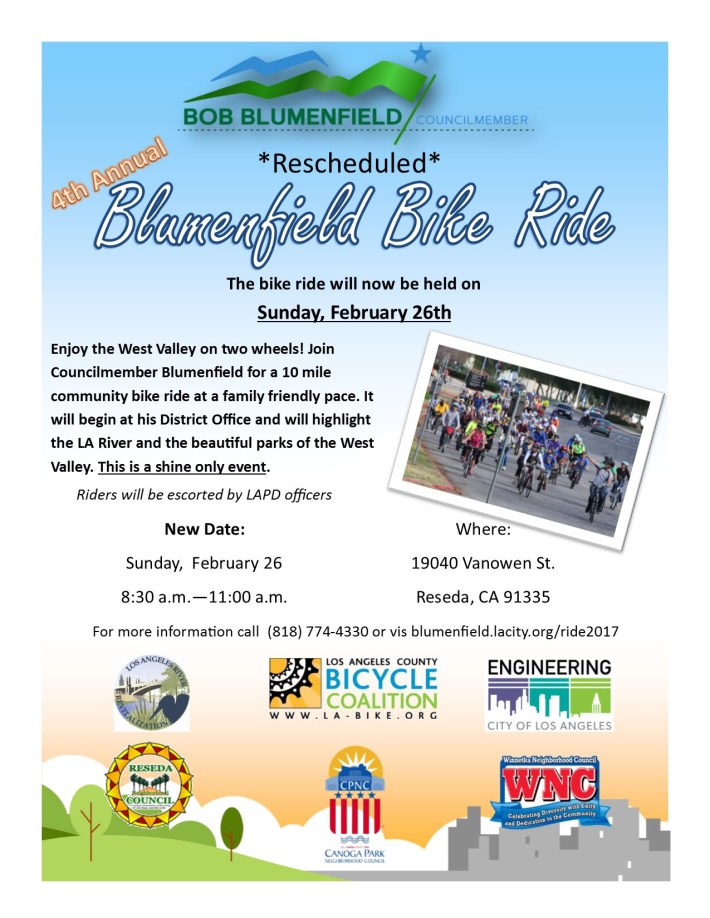
It seems that the Santa Monica model is similar to the type of program that Blumenfield wants to see. In addition to licenses, the approved council motion also requires, "Increasing the reporting of bicycle thefts, including outreach to inform people that such reporting is necessary and effective, and potentially allowing on-line filing of bicycle theft reports, including costs of such programs and potential funding sources," Blumenfield explained.
There are small, independent programs in individual LAPD Divisions to encourage voluntary bike registration, but no coordinated Citywide effort. For example, the City should encourage or require retailers to register bikes at the point of sale, without punishing bike owners. Bike education programs sponsored by the City, Metro or LAUSD could offer on-the-spot bike registration.
But there are still some who remember the political battles that led to the LAPD suspending the city's bike licensing program in 2009 and will view any attempt to revive the program with a small amount of dread.
In 2008, there were nightly recreational bike rides organized independently at the Midnight Ridazz website. Some of these rides would attract dozens of riders, other hundreds of riders, others would get even higher. Critical Mass on the last Friday of the month was well known for attracting well over 1,000 riders. Another, more festive ride called CRANK MOB was basically a bacchanalia on wheels.
In response, the LAPD began ticketing people taking part in the rides, usually for failing to yield or running a red light. At some intersections, you would literally see hundreds of bicyclists running through the light as ride leaders would "cork" the intersection and encourage them through. Hapless officers would usually pick a few out of the crowd to ticket. Almost always, a few riders would stay behind and observe or film the ticketing to make certain the rights of the caught cyclists were being honored.
Eventually, officers began ticketing the people observing the ticketing as well. A lack of bike lights, even on well-lit bicycles, was a favorite ticket. So was ticketing bicyclists who had lacked a state bicycle license sticker, as was then required by city law. The fines ranged up to $200, even though state law capped the offense at a mere $10. Most people were surprised to find out that licenses were even available, much less required.
One of the first ticketed in this sting was Don Ward, well known under his Ridazz handle as Roadblock, who often seems to find himself at the center of controversy surrounding safe streets. Ward and some of his friends from the Bike Writers Collective organized what they called Civil Obedience rides where they would show up at an LAPD station, where licenses had to be available if an enforcement program was in place, to get licensed. Oftentimes, the station didn't have licenses, or didn't have enough, or only had them available at totally weird hours.
This advocacy convinced the City Council to step in. At the time, the Transportation Committee was just beginning to earn a reputation as being supporters of bicycling and bicycle culture. Pushback against the enforcement of mandatory licensing came from then Councilmember Bill Rosendahl, whose Chief of Staff was Mike Bonin, and Councilmember Bernard Parks, past Chief of the LAPD.
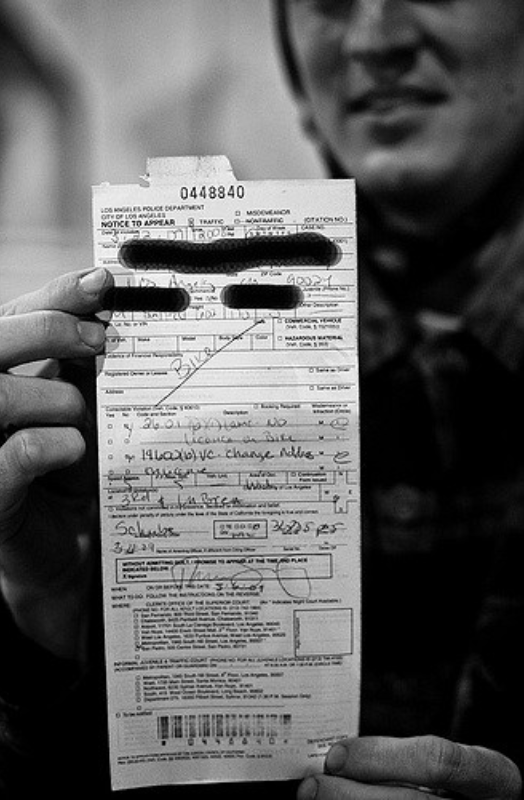
In March of 2009, the LAPD voluntarily ended the program with a letter signed by Chief William Bratton. Three months later, the city repealed the statute that required mandatory licensing. And then everyone breathed a sigh of relief...for five years, until Councilmembers Tom LaBonge and Mitch O'Farrell floated the idea of bringing a program back. That proposal was promptly tabled and never heard from again...until now.
However, Blumenfield seems prepared to do better than past efforts: "I am well aware of the failures of the prior licensing program, including that most police stations didn't offer licensing, the 'database' was worthless and, at least anecdotally, that the licensing requirement was sometimes used to harass youth and people of color. My intention is not to repeat the mistakes of the past, but to develop a program that serves bicyclists and the community by deterring bike theft."
